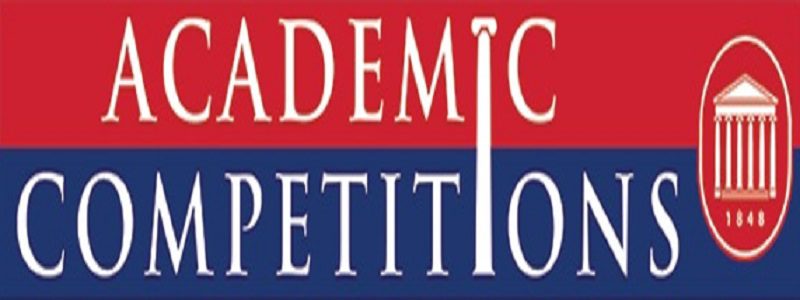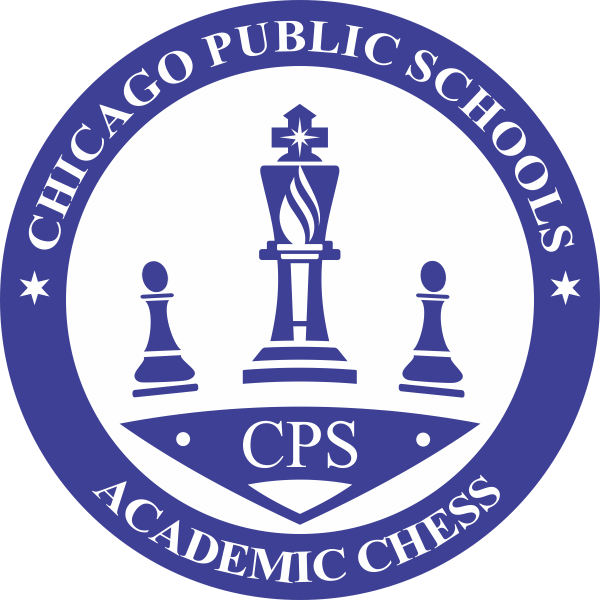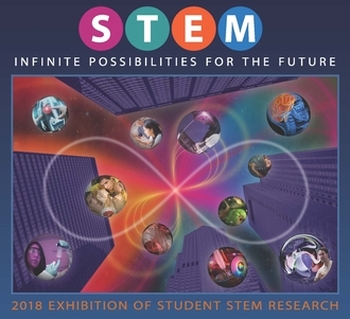
Introducing the Academic Competitions Classroom Infusion Series (ACCIS)
As you may know, I spent 15 years of my career building urban debate leagues, which are organized competitive debate programs in urban public school systems. I was the founding director of the Chicago Debate League, and helped build it into the nation’s model UDL. I was also the founding director of the National Association for Urban Debate Leagues, where I helped create and build up urban debate leagues in a dozen cities across the country. When I left urban debate five years ago to found Argument-Centered Education I thought that I had spent my last hour working with teacher-coaches who prepare for weekend competitions. Mostly true, but along came ACCIS, which in some ways does for other academic competitions what I am doing for debate with ACE.
ACCIS Overview
The Academic Competitions Classroom Infusion Series (ACCIS) is in its second full year. ACCIS is a program of the Chicago Public Schools Office of Student Support and Engagement (OSSE), designed and implemented collaboratively with Argument-Centered Education. ACCIS is the first program of its kind in the nation, with the overall objective of leveraging the investment that individual teacher-coaches make in becoming expert academic competition coaches to enhance their regular classroom instruction.
The Academic Competition Classroom Infusion Series is premised on the investment that Chicago Public Schools makes in its slate of high-performing and highly successful academic competitions. The Wallace Foundation, perhaps the nation’s leading foundation support of after-school programming, recently identified Chicago as having several factors that suffuse its after-school programs broadly, including strong leadership, robust public-private partnerships, and innovative programming models (Opportunity in Hard Times: Building Out-of-School Time Learning Systems that Last, 2009). Chicago has leading competition programs in Academic Decathlon, science fair, math league, debate, and chess. And the success of these programs is not new. Over the past 25 years, there has been a very substantial investment in Chicago in academic competitions, one that is resulting in a substantial out-of-school-time return for tens of thousands of students and well more than a thousand teachers.
ACCIS was born of the opportunity that the school system has been overlooking to get more efficient value from its investment in academic competitions, more of an academic achievement bump, more ‘bang for its buck.’ ACCIS has begun to help teachers bring the professional learning that they have been acquiring to become coaches and sponsors of their academic ‘sport’ into the regular classroom. What cross-application of this professional learning that has taken place has rarely risen to the level of professional intentionality that good teachers apply throughout their professional practice. This isn’t surprising. Prior to ACCIS, teachers have been offered no professional development, training, or on-going support to connect their very significant academic competition work to their main instructional work in their regular courses. The Academic Competition Classroom Infusion Series addresses that gap – specifically for Academic Decathlon and chess league teacher-coaches – and thereby leverages the academic competition apparatus in CPS around these projects, in order to directly affect and upgrade classroom instructional practice.
ACCIS discovers and disseminates the means and methods of taking the most powerful elements of academic competitions and incorporating them into regular secondary classrooms in CPS. And it has successfully piloted a programing model that workshops with teachers in hands-on activities, providing implementation coaching that advance teachers’ reflection and improves their instructional practice. ACCIS helps teachers interrogate why, when, and how the wall between academic competition coaching and classroom teaching can be broken down, enabling teachers to integrate and thereby upgrade their professional skill set.
Competition-Specific Insights and Activities
This school year, ACCIS has encompasses three academic competitions: chess, Academic Decathlon, and Science Symposium (formerly called Science Fair). Thirty-eight teachers from 34 middle and high schools have been active cohort participants in this year’s program. Here are insights and activities that have come out of ACCIS programming with each of these three academic competitions.

Through work with the teacher-coaches that have taken part in the competitive chess programming in ACCIS this school year, we have discovered several key components of the academic value of chess that teachers can apply to and infuse within their classroom instruction.
Gamification
Chess is a game with the social, competitive, and student-centered qualities of games.
Scenario Modeling and Predicting
Chess requires players to model quickly and dynamically how certain moves are likely to play out, requiring honed skills in predicting behavior.
Problem-Solving and Thinking Critically
Chess rewards players who can rationally analyze problems and find the most advantageous solution, subjecting each option to critical, skeptical thought, trying to find its flaws or weaknesses.
Pattern Identification and Deploying Learned Moves
Chess players identify patterns of play and deploy learned moves.
With teachers we collaborated on infusing each of these academic elements in their regular, current classroom curriculum. In one example, we worked with a middle school chess coach who teaches math and was in the middle of an extended unit covering a sequenced set of 7th/8th grade math skills in preparation for NWEA MAP testing. We gamified this unit by putting students in teams of three, having them accumulate weighted points on assessments and activities on each set of skills, allowing them to move to the next set after attaining a certain score or after a set amount of time, and tracking scores by team and individual on a large board at the front of the class. We gave awards to teams and individuals based on raw scores and on score growth. We also have award winners explain processes of solving certain sets of problems.
In another example of the application of competitive chess essentials to classroom instruction, we worked across schools, with chess coaches who teach science and economics, to develop an energy unit project on alternative energy sources and solutions. We included specifications that students map out and predict likely responses by consumers and businesses to each one of a set of alternative energy policies – e.g., a carbon tax, a “cap and trade” policy – and use these “move predictors” to choose how to modify and implement the most effective alternative energy strategy to address climate change over the next three decades.

One of the central ways that we have worked with Science Symposium teacher-sponsors within ACCIS is through investigating in close detail, and from various angles, how scientists and science students organize and present their data to support their scientific conclusions and discoveries in a project or report. The testing, selection, assembly, and presentation of data as a higher, college-directed practice was an important consistent thread and theme across CPS science teachers that we worked with this year. One example of the way that we advanced this thinking and applied it to pedagogy was creating lessons around ANOVA data structuring and applying this quantitative technique to basic experiments in 7th – 10th grade biology and earth science – for instance, testing the acidity and alkalinity of water samples and measuring the effect of color shading on the growth of plants of various species.
Another feature of Science Symposium projects that is given more weight than is typically allotted in the regular curriculum is taking seriously the possibly criticisms or objections that might be raised to a student’s scientific work. In argumentation, this is called “responding to the counter-argument” or “refutation,” and in the Science Symposium it is a rather significantly weighted part of every student’s experimental or scientific design project. We worked with science teachers on routines and practices that would help them carry into their classroom the new emphasis that responding to critique has in the Symposium projects. Typically this can be done in the classroom in two ways. One way is to have students think carefully about and generate critiques that apply to their peers’ science labs, projects, or reports. Another way is to build in a component of self-critique, through graphic organizers that prompt students to look for crucial nexus points in the science content that they are studying, and to role-play the part of a skeptical or negative reviewer of their work – what that person would say to counter their work, and how they would respond to that critique. We worked on two projects with physics and chemistry 11th and 12th grade science teachers using these techniques – one on an engineering project building electricity generator models and another creating chemical formulas that would neutralize toxic industrial solutions.

Academic Decathlon is the original academic competition for which ACCIS was first conceived and designed. AcaDec has a dual relationship to classroom infusion. One level is for discipline-specific content instruction. The AcaDec topic this year was Africa and there were very direct ways that AcaDec coaches’ immersion in this content, in helping their students prepare for the competition, was re-applied to their classroom teaching, through ACCIS (e.g., a project on European colonialism in Africa in the 19th and 20th centuries). The other level is cross-disciplinary – the intrinsic features of the academic competition distilled and then applied back into the methodology and form of teaching. We focused this year on these four intrinsic elements of AcaDec as an activity, in its format:
Outlining Information
AcaDec competitors have to outline information in each subject area – or they are given outlines – so the method and technique of outlining (which involves summarizing information and analyzing complex concepts into simpler constituent parts) is one that emerges as a cross-disciplinary skill.
Study Groups
AcaDec competitors typically organize themselves into study groups to help them prepare to build knowledge strategies to apply to each discipline. The use of study groups can be compared to jigsawing as a common method in instruction.
Sub-Unit Leaders or Experts
As part of study grouping, AcaDec teams will typically assign a sub-unit leader or expert for each portion or segment of a discipline, in preparation for competition. AcaDec coaches have been exploring the application of sub-unit leaders or experts in their regular classroom to build student agency, ownership, and accountability.
Gamification
As with other academic competitions, AcaDec derives much of its student initiated learning and intrinsic motivation through the pedagogical principle of gamification – integrating game-like features and elements into lessons and learning.
Conclusion
Argument-Centered Education was really born of the idea that the research-demonstrated, profound academic value that students derived from competitive debating could be and should be applied throughout regular classroom instruction, so that instead of 15 – 20 students in a high school or middle school experiencing these transformative benefits, a school’s teaching and learning could be organized around regular academic argument and debating about the key, debatable questions intrinsic to each subject area. But to do this, teachers would need resources, training, and support; teachers would have to build argument pedagogy into their professional capacity. The Academic Competition Classroom Infusion Series works on a very parallel track: helping teacher-coaches in other academic competitions distill what is academically essential and most valuable about their activity and apply it with intentionality to their classroom instruction, to ensure that the professional learning that they undertake to become coaches translates into expanded and enhanced instructional capacity.
If you are interested in learning more about ACCIS, or possibly becoming involved in ACCIS Chicago or in starting a similar (if perhaps smaller) program in your district, network, or school, reach out to us at info@argumentcenterededucation or 312-646-2180.

